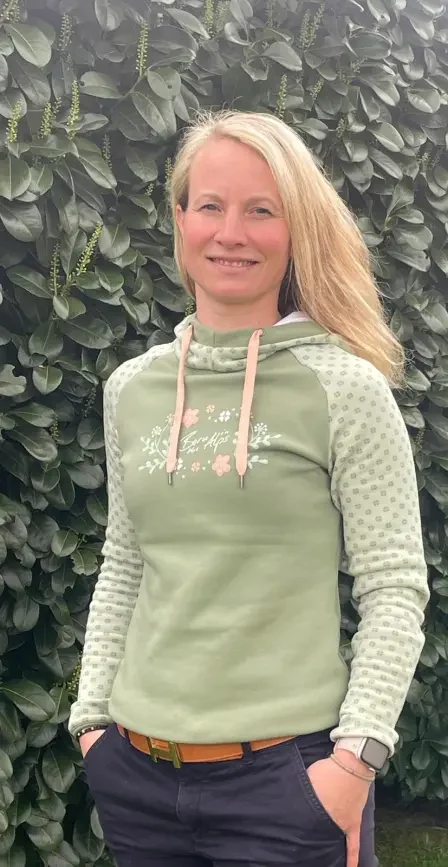Personal Experiences
Here, people share experiences similar to Jasmin’s. Whether young or old, life-changing or subtle—every story matters. Read along—or share your own.

Hello, I’m Nicole. I’m 38 years old, an occupational therapist, a mother of two children, and I’ve been riding horses since I was a child.
I’ve known Jasmin for over 20 years—she’s my godmother and like a second mother to me.
When I got the call that morning about her accident, I was in shock. I couldn’t believe it and drove straight to Hamburg.
Even though I’ve been working in neurology as an occupational therapist for over 16 years, seeing Jasmin in that condition was incredibly difficult.
She was unresponsive, would only open her eyes briefly, and the doctors weren’t very hopeful. She barely answered questions, and when she did, her responses often didn’t make sense. She had no control over her left side, and it was immediately clear to me that this would be a long road.
It was unimaginable — how such an independent and strong woman could suddenly be so helpless. Every time I left the hospital, I drove home in tears.
I visited Jasmin several times, and she gradually became more alert, but that also made the extent of the damage more obvious. She asked the same questions repeatedly.
Simple things — like washing, getting dressed, using the toilet, sitting on the edge of the bed, using her phone, or even just moving—were no longer possible.
Her left side had sensory deficits and lacked purposeful motor control.
In the early days, Jasmin had no awareness of her condition, which made things difficult. Her greatest wish was simply to go home—she even believed she could drive a car, though she wasn’t even able to sit upright on her own.
Rehabilitation: It quickly became clear that she had a mild hemiparesis on the left side, as well as left-sided ataxia and short-term memory impairment.
Jasmin had to relearn all the basic activities of daily life—like washing and dressing—while coping with these limitations.
The overall goal of occupational therapy is to improve quality of life: to lead an independent life, return to work, and enjoy time with family and friends.
When Jasmin told me she wanted to leave rehab on her own terms, I told her she was out of her mind.
But it was incredible to witness how, step by step, she fought her way back into her independent life.
That she would ever get back on a horse—I would never have believed it back then.
Which makes it all the more remarkable to see what can be achieved through family, friends, therapy, and sheer willpower.
And this journey is far from over…
